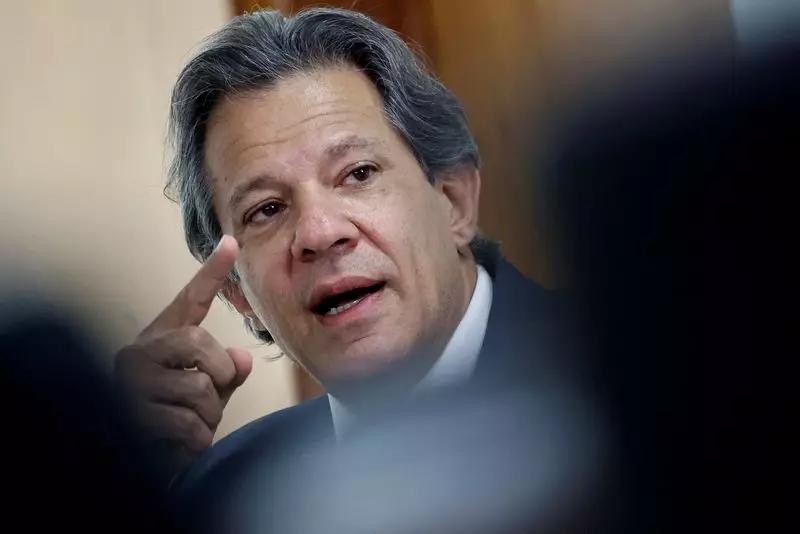Brazil, a nation rich in resources and diversity, is currently grappling with the complexities of its fiscal responsibilities. Recent developments from Brasilia reveal that Finance Minister Fernando Haddad has made headway in addressing key obstacles related to a fiscal package. This initiative is designed to rein in mandatory expenditures that have rapidly escalated. However, with the Brazilian real trading at historic lows against the U.S. dollar, the urgency for decisive action is palpable.
The reluctance of the Brazilian government to swiftly announce a comprehensive fiscal package highlights a deeper issue within the economic framework of the nation. Continuous discussions regarding proposed spending cuts have raised concerns among investors and citizens alike. Haddad noted that the immediate hurdles which had stalled discussions were resolved, although he did not commit to a timeline for when the package would be unveiled to the public. This lack of clarity raises questions about the government’s strategic planning and its communication with key stakeholders.
The recent weakening of the Brazilian real underscores the economic anxiety brewing amid prolonged uncertainty about fiscal policy. As mandatory spending climbs, an increasingly cautious approach from the government risks exacerbating vulnerabilities in the currency and overall economic stability.
Significantly, President Luiz Inacio Lula da Silva’s decision to extend the proposed budget cuts to an additional ministry signals an evolving strategy to tackle Brazil’s fiscal challenges. While specific details about the selected ministry remain undisclosed, this development is indicative of a broader effort to integrate more comprehensive reforms across various sectors.
Meetings conducted with leaders from over ten ministries, including education and health, reveal an active attempt by the administration to engage multiple stakeholders in this fiscal discourse. However, the additional inclusion of a ministry into the budgetary constraints showcases the complexity and perhaps the contentious nature of budget discussions within the government.
Despite these efforts, the government has consistently stated that it would only introduce the fiscal package post the municipal elections held in late October. The absence of a definitive timeline poses a considerable risk; delays could lead to increased speculation and further depreciation of the currency. Additionally, Haddad’s assurance that negotiations have not stalled presents a somewhat optimistic narrative that contrasts starkly with the tangible anxieties faced in the financial markets.
In his upcoming discussions with President Lula regarding the presentation of the fiscal measures to legislative leaders, Haddad’s optimism around Congress approving these reforms within the year remains to be seen. However, without a clear and actionable strategy, the government’s ability to regain public and investor confidence may remain hindered, leaving Brazil in a precarious fiscal position.
The current fiscal landscape in Brazil presents both challenges and opportunities for government officials. As the administration navigates its path forward, a focus on clear communication and strategic foresight will be essential to ensure that necessary economic reforms gain the support they require. Ultimately, Brazil stands at a critical juncture, and its commitment to addressing these fiscal challenges will define its economic trajectory in the years to come.

